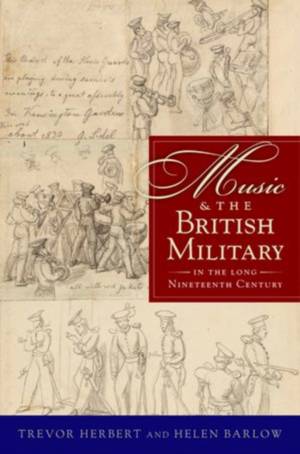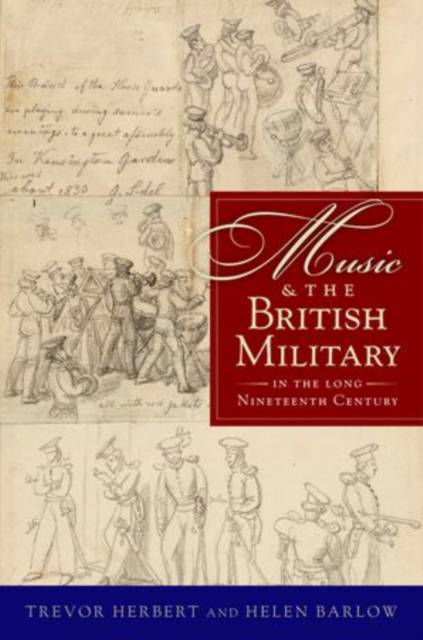
- Retrait gratuit dans votre magasin Club
- 7.000.000 titres dans notre catalogue
- Payer en toute sécurité
- Toujours un magasin près de chez vous
- Retrait gratuit dans votre magasin Club
- 7.000.0000 titres dans notre catalogue
- Payer en toute sécurité
- Toujours un magasin près de chez vous
225,95 €
+ 451 points
Description
Although military music was among the most widespread forms of music making during the nineteenth-century, it has been almost totally overlooked by music historians. Music & the British Military in the Long Nineteenth Century however, shows that military bands reached far beyond the official ceremonial duties they are often primarily associated with and had a significant impact on wider spheres of musical and cultural life.
Beginning with a discussion of the place of the military in civilian and social life, authors Trevor Herbert and Helen Barlow plot the story of military music from its sponsorship by military officers to its role as an expression of imperial force, which it took on by the end of the nineteenth century. Herbert and Barlow organize their study around three themes: the use of military status to extend musical patronage by the officer class; the influence of the military on the civilian music establishments; and an incremental movement towards central control of military music making by governments throughout the world. In so doing, they show that military music impacted everything from the configuration of the music profession in the major metropolitan centers, to the development of wind instruments throughout the century, to the emergence of organized amateur music making. A much needed addition to the scholarship on nineteenth century music, Music & the British Military in the Long Nineteenth Century is an essential reference for music, cultural and military historians, the social history of music and nineteenth century studies.
Beginning with a discussion of the place of the military in civilian and social life, authors Trevor Herbert and Helen Barlow plot the story of military music from its sponsorship by military officers to its role as an expression of imperial force, which it took on by the end of the nineteenth century. Herbert and Barlow organize their study around three themes: the use of military status to extend musical patronage by the officer class; the influence of the military on the civilian music establishments; and an incremental movement towards central control of military music making by governments throughout the world. In so doing, they show that military music impacted everything from the configuration of the music profession in the major metropolitan centers, to the development of wind instruments throughout the century, to the emergence of organized amateur music making. A much needed addition to the scholarship on nineteenth century music, Music & the British Military in the Long Nineteenth Century is an essential reference for music, cultural and military historians, the social history of music and nineteenth century studies.
Spécifications
Parties prenantes
- Auteur(s) :
- Editeur:
Contenu
- Nombre de pages :
- 368
- Langue:
- Anglais
Caractéristiques
- EAN:
- 9780199898312
- Date de parution :
- 02-08-13
- Format:
- Livre relié
- Format numérique:
- Genaaid
- Dimensions :
- 157 mm x 241 mm
- Poids :
- 635 g

Les avis
Nous publions uniquement les avis qui respectent les conditions requises. Consultez nos conditions pour les avis.






